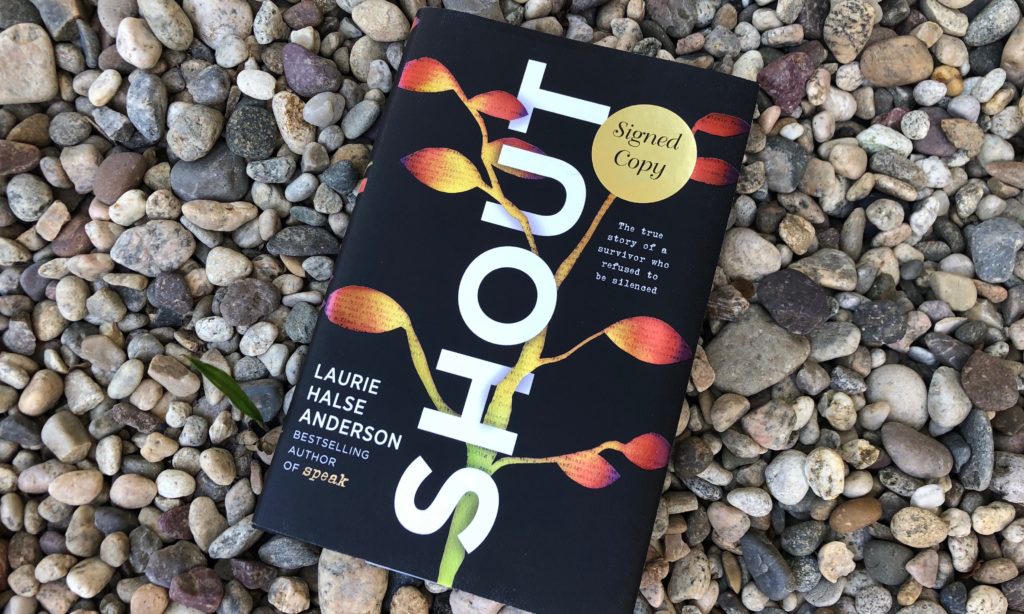It’s hard to imagine a time when publishers believed “teenagers didn’t like to read,” as Laurie Halse Anderson’s Shout remembers. Into this seemingly barren literary landscape in 1999 flared Anderson’s novel Speak, a now-classic work about a girl’s depression and silence after being raped when she was 13. Now, twenty years later, Shout – a poetry memoir about Anderson’s own experience with sexual assault – should be required reading for its shattering beauty and truth.
It would be easy to slot this memoir into one genre or time, an outgrowth of #metoo. Yet to do so would diminish its power. Shout is an author’s story of her difficult childhood, an acknowledgment that “I thought I was the only kid with a house on fire, but I wasn’t.” It is a consideration of how and why we write, of the obligations authors have to their readers. When Anderson was a finalist for the National Book Award in 1999, she took note of how titan YA author Walter Dean Myers stayed through lunch and talked with a boy who had questions: “he made the time for a reader/ because integrity required it/ that’s what we’re called to do.”
Shout is also a book for teachers and parents, coaches and mentors, anyone who appreciates teenagers. One especially serious section calls out the boys in Anderson’s audiences who always ask of the main character in Speak, “Why was Melinda so upset?” After all, they say, Melinda kissed, even liked, the guy who raped her. Anderson follows this by pointing out people’s “true confusion” over “the rules of intimacy.”
Yet she leads us into such darkness wryly, by wondering what we should call a group of adolescents: “a what? of teens/ a wince of teens/ mutter of teens/ an attitude, a grumble, a grunt/ a disenchantment of teenage girls/ a confusion of teen boys.” Often the memoir also pours forth language that uplifts, such as a gorgeous chapter about consent called “yes, please” that begins: “ ‘yes’/ sounds like heaven falling from the sky/ yes smells like hot, hot/ sweet apple pie.”
While reading, I felt that this book had somehow always existed, as a scrim behind Speak, and now it had stepped out backlit, brilliant. I also wondered about the connection between Speak and Shout, between fiction and nonfiction, in Anderson’s mind. In this memoir she pulls back the curtain herself, leaving us with a searing and near-magical image: “the overlap of my stories and my life/ is a garden courtyard, sky-strung with stars/ and scars where planets were torn/ from their orbits/ the courtyard where that stump grows/ is surrounded by stone walls/ three miles high, carved/ with thousands of locked doors/ and secrets that bloom open/ in the moonlight.”

